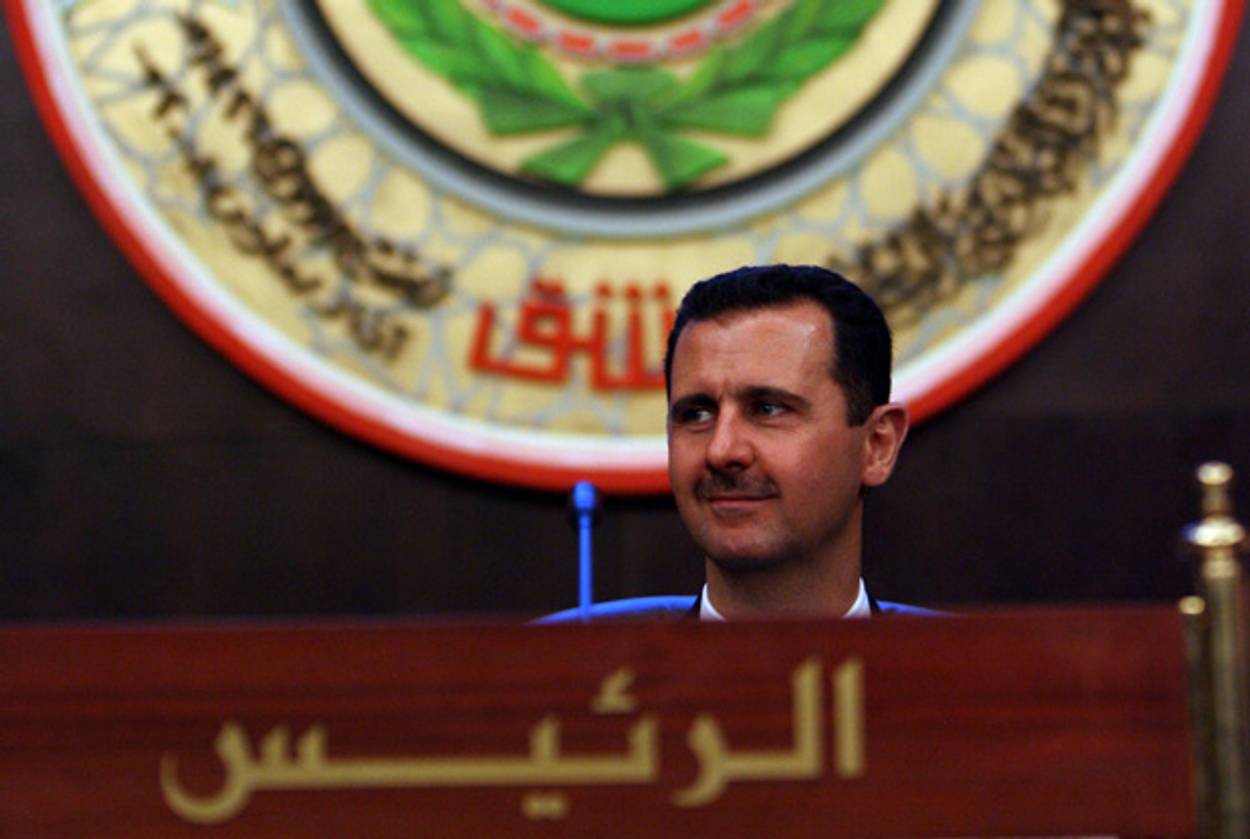Assad Ouster Begins to Look Inevitable
As world moves against Syria, reminder that Israel was among the first




It would be eerie without the events of the past 12 months: Most of the world lines up at the U.N. Security Council to try to pass a resolution calling for the regime change of an Arab autocracy, and the entire resolution is based on an Arab League plan. It’s the Arab League—of which Syria was officially a member in good standing as late as last September—that recently called on President Bashar Assad to delegate powers to his vice president and step down in the face of documented, intentional atrocities and a failure to negotiate with the opposition in a situation that increasingly appears to be a flat-out civil war, a call on which a binding U.N. resolution is being modeled. Now, it is Russia, with its veto, that most stands in the way of meaningful action, ensuring at the least that a watered-down compromise will step nowhere near the threat of military action; it is also insisting that the resolution not explicitly call for regime change and generally avoid interfering in what do, technically, remain the internal affairs of Syria.
So, what’s the point of a toothless resolution? “The Arab-Western strategy at the U.N. makes a great deal of sense if Assad’s days are truly numbered, and the decisive pressure to remove him will come from the inside,” argues Marc Lynch in an excellent analysis. (He writes as one who opposes any military action, even a no-fly zone, on the merits.) “An international consensus crystallized in a Security Council resolution would limit the regime’s options and send a clear signal to Syrians that their future does not lie with the status quo,” he adds. “The political transition plan may not unfold as outlined on paper, but the constant references to toleration and inclusion can reassure frightened elites and minorities that they have a place in post-Assad Syria.” And to Assad, it would be a threat of what might come next.
Why wouldn’t Russia relent? Especially given the thousands of Syrian soldiers who have already defected and much chatter from the West (some of it no doubt ginned up precisely to make the regime’s end seem inevitable, but still) that Assad is on his way out? The answer is, Russia probably will. Credit also Secretary Clinton’s strong speech Tuesday and Secretary-General Ban Ki-moon’s admonition that the Security Council form a consensus. Even credit the Turkish president, who said it’s over for onetime ally Assad. Their words will make it so.
And really, credit Israel. They wanted this before just about everyone. When the unrest first started in Syria last spring, everyone assumed Israel would prefer the stability of Assad—that phrase about “the devil we know” was tossed around a lot, including by me. Ambassador Michael Oren answered that way of thinking by June: “Allied with Iran, Mr. Assad has helped supply 55,000 rockets to Hezbollah and 10,000 to Hamas, very likely established a clandestine nuclear arms program and profoundly destabilized the region,” Oren wrote. “The violence he has unleashed on his own people demonstrating for freedoms confirms Israel’s fears that the devil we know in Syria is worse than the devil we don’t.” No doubt Israel has been moved in large part by the near-certainty that an Assad-less Syria would greatly hurt Iran and its ability to project power throughout the region that threatens Israel, chiefly by funding and shipping arms to Hezbollah and Hamas (indeed, Hamas has already ditched Damascus and may be splitting with Tehran). For Israel, pragmatism may have been the better part of virtue. But they were still virtuous before the rest of the world (minus Russia and a few other holdouts) came around: a statement, in its way—you can know someone by his enemies—about what Israel stands for in the region and the international community.
Diplomats at U.N. Haggle With Russia Toward a Compromise on Syria [NYT]
The Security Council Takes on Syria [FP Mideast Channel]
Endgame in Syria [WP PostPartisan]
Israel Prefers The End of the Assad Regime to Its Continuance [WSJ]
As Syria Wobbles Under Pressure, Iran Feels the Weight of An Alliance [NYT]
Marc Tracy is a staff writer at The New Republic, and was previously a staff writer at Tablet. He tweets @marcatracy.